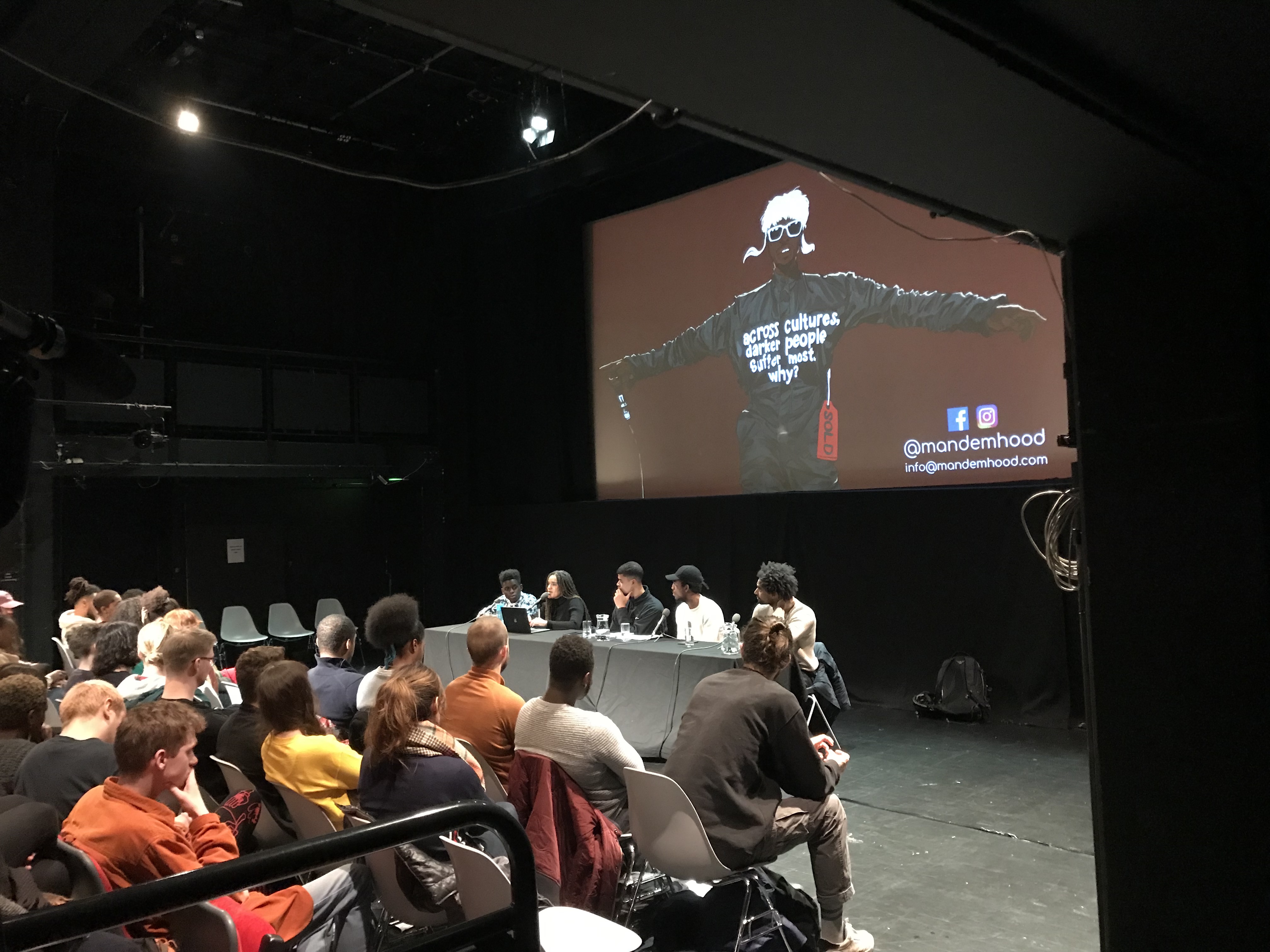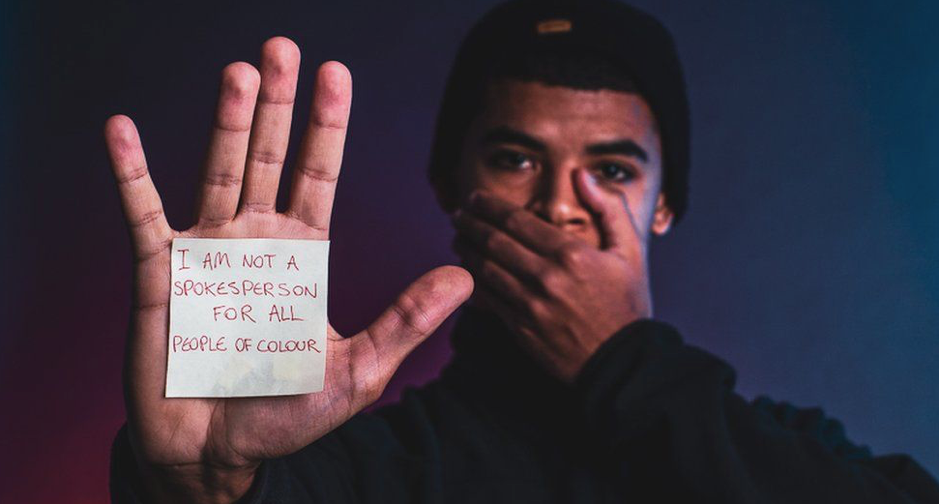By Zoë Crowther, Students’ Union Correspondent
Bristol student Elias Williams is the founder of Mandem, an online media platform created in 2017. He was recently listed as one of the most influential young people in Bristol by Rife Magazine.
Elias and myself are both MA History students here at Bristol. Whether in a seminar or at the pub, we frequently engage in discussions about politics, history and identity. This conversation therefore came naturally, the only difference being that this time I hit a record button.
I spoke with Elias to gain an insight into Mandem and the challenges that he has faced in the development and growth of the project. He explained: ‘Mandem is a media platform for young men of colour to express themselves creatively, whether that be through writing, music, film-making. We also try to engage young people more generally in important issues of our time.’
Youtube / Mandem
Contributor Olumide Osinoike's latest project: 'Identity Matters'
Focusing on racial and masculine identities, Mandem's content ranges from personal stories and interviews to opinion pieces and reviews of recent film and music releases. Alongside Elias’ own work, local and independent artists, film-makers and photographers are regularly featured.
Elias explained how his creative background helped him to create Mandem: ‘I did my undergraduate degree in film-making at UWE. That was very useful in creating a media platform because it allowed me to do a bunch of interviews and also it helped me build networks.’
Some of Elias’ own projects have drawn upon historical events, offering commentaries on how history and heritage inform contemporary understanding of racial identities. In a short video made for Channel 4’s Random Acts scheme, Elias provides a fresh perspective on African history: a group of creatives make a rap video by interrupting a history documentary about Mansa Musa, the Emperor of the Mali Empire in the early fourteenth century and one of the wealthiest individuals to have ever lived.
Youtube / Mandem
Elias Williams' short film 'Mansa Musa Riddim'
I asked Elias why he wanted to study MA History, and what impact this might have on Mandem. ‘I’ve always been aware that from setting up Mandem, I’m going to be asked a lot of questions about race and other complex topics. I felt this was a really nice chance to solidify some knowledge in actual academia. I think it’s going to be very useful because history is all about weighing up both sides of the argument.’
On Monday 4 February, Elias hosted and chaired a sold out panel event ‘Has Identity Politics Gone Too Far?’, which is now available to watch in full on YouTube. The panellists’ dialogue with the audience became heated toward the end of the talk, and it is apparent that controversy is not something which Elias shies away from. ‘I think it’s healthy to approach divisive topics because I feel quite passionately about creating more clarity. I think divisiveness is often rooted in ignorance so it’s nice to gather a few people together from both sides to try and discuss it in a civil manner.’
Mandem has previously held a talk on masculinity and fatherhood, as well as a panel event called ‘Do Mandem Need Feminism?’ which, according to Elias, was their most controversial to date. In an article for Mandem, Elias wrote that he believes that ‘radical feminist theory holds many answers to why men inflict violence upon themselves and others.’
I asked whether there is significant crossover with Galdem, a print and online magazine set up in 2015 which publishes content entirely produced by women and non-binary people of colour.
Masculinity, male mental health and my father https://t.co/kOJ1dPY3lH pic.twitter.com/tQe2zu3idT
— gal-dem (@galdemzine) November 29, 2016
‘In an ideal world I would like to collaborate with Galdem. But the editor has a problem with the name 'Mandem.' I took it very seriously at the start, but I spoke to a lot of people and decided there wasn’t a strong enough reason not to go with it. Mandem and Galdem are both very young, who knows in ten years what might be happening.’
Elias set out his intention to open up conversations among those who do not necessarily share the same backgrounds or perspectives: ‘We’ve always thought we’d want Mandem to be something where one day down the line, your race doesn’t matter in terms of contributing to these important discussions.
'Race is just a construct and that’s the most irritating thing sometimes about identity. Zadie Smith said recently that “identity is a pain in the arse” and I very much agree with her. It can often feel very restricting, like if you’re a black artist you feel like “I’ve got to make something about blackness otherwise no-one’s going to care.”
‘Part of the reason for having ghostwriters is to give people a chance to be published anonymously. Entering these conversations is difficult and uncomfortable. I think if you want to voice your opinion, anonymity can be a really effective way of still getting that release.’

Mandem panel event 'Has Identity Politics Gone Too Far?'
As well as offering a creative outlet for its contributors, I questioned whether Mandem could also contribute to the conversation surrounding male mental health. ‘Definitely yes - I think it’s important that young people speak up about mental health issues and don’t let it be something that the mainstream media spin stories on all the time. I think it’s important for those of us in the social media era to come together to discuss them.’
Elias compared Mandem to bigger corporations such as the BBC or Channel 4, saying that he wants Mandem to act as a varied platform rather than an echo chamber. ‘Being independent, we don’t have much of an agenda in a sense.’ I pulled him up on this: ‘I don’t think it’s true you don’t have an agenda! You do have a mission, in terms of where you would like to see Mandem in ten years time.’
‘Yeah, that’s fair enough – it would be awesome to expand and do events at different universities across the country. A lot of the black narrative and culture can feel a little bit London-centric and I feel it is important to break out of that.
‘What I would really like Mandem to be in the future is a space for the political voice of young people. The mainstream media doesn’t always do that. It’s also important to respect that the very inception was based around race and masculinity and I think from that it allows us to expand. Race and masculinity are involved in everything! Looking into the future, it’s exciting.’
We have a brand new opportunity for young writers of any ethnicity, gender or background! We hope it can encourage everyone to join the conversation about race and masculinity, find out more here: https://t.co/WagzZnjbLZ - please share with anyone who might be interested!! pic.twitter.com/aPjCEgzver
— Elias Williams (@eliasxwilliams) February 6, 2019
Featured Image: Mandem / Olumide Osinoike








